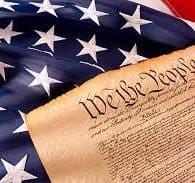The Supreme Court’s decision on Trump’s tariffs could have far-reaching implications – not just on Trump’s tariff policy, but on his voracious accumulation of power through executive orders that rely on emergency declarations – often in circumstances where the existence of an actual emergency is dubious at best.
The Supreme Court has set November 5th as the date on which it will rule on the legality of a good portion of Trump’s tariffs which he imposed by executive order citing the International Emergency Economic Powers Act (IEEPA).
Lower federal court decisions, first by the Court of International Trade (CIT), and then by the Court of Appeals for the Federal Circuit (Federal Circuit), have declared that tariffs imposed by Trump under the IEEPA are unconstitutional.
If the Supreme Court allows Trump to invoke emergencies to avoid what appear to be clear constitutional prohibitions requiring congressional authority on tariffs, it is hard to see where there will be any limit to his expansive plans to govern through dictate.
Under Article I, section 8, clause 1 of the U.S. Constitution, Congress has exclusive power to tax and impose duties. It is not subject to serious dispute that tariffs are a tax.
Nevertheless, Trump argues that under the IEEPA, enacted in 1977, Congress has delegated the power to impose tariffs upon the president’s determination of the existence of a national emergency.
The national emergencies cited by Trump for his tariffs are: (a) his finding that Canada and China have not done enough to prevent the importation of drugs into the United States; and (b) that there is a national emergency due the lack of reciprocity in trade relationships throughout the world.
The language in the IEEPA defines emergency necessary to invoke the act as an “unusual and extraordinary threat … to the national security , foreign policy, or economy of the United States.”
One does not need a law degree to reach the common sense conclusion that Trump’s stated premises for his tariffs are weak pretexts that do not meet this definition of an emergency. As the CIT pointed out, there is no nexus between the trafficking of drugs into the U.S., and the imposition of tariffs against Canada and China. Moreover, both drug trafficking and the supposed lack of trade reciprocity have existed for decades. Nothing has recently changed in any significant way on these issues in recent years.
If an emergency can be declared on something that has existed for so long, then almost every problem that the U.S. had faced over the last 50 years can be labeled as an “emergency” to justify expansive and perpetual emergency powers by the executive branch. Already, Trump has declared emergencies to authorize troops in the streets of American cities, to impose voting rules on states, to deport immigrants without due process, and to attack and kill alleged drug smugglers in international waters.
If the president is the sole decider of what constitutes an emergency, even when it obviously is just a ruse, then his power will be virtually unchecked.
The CIT’s decision examined whether stated “emergencies” were sufficient to invoke the IEEPA, and found that they were not. On the appeal of that decision, the Federal Circuit decided that it did not even need decide the issue of whether the purported emergencies existed, holding that the IEEPA simply does not authorize imposition tariffs, emergency or not.
As the Federal Circuit noted, the Framers expressly granted the power to tax to the legislative branch for a reason. When Patrick Henry expressed concern that president “may easily become a king,” James Madison replied that this would not occur because “the purse is in the hands of the representatives of the people.”
If the Supreme Court does not affirm the decision of the Federal Circuit, and declare that Trump’s tariffs are unconstitutional, the words of James Madison, the primary author of our Constitution, will be rendered hollow. If the court continues on its course, and allows Trump to be the sole judge of what constitutes an "emergency," Trump likely would take such a decision as a license to further expand presidential power to the point where Congress and the States become completely irrelevant.
It's not hyperbole to suggest that the fate of our democracy could hinge on this decision.

Member discussion: